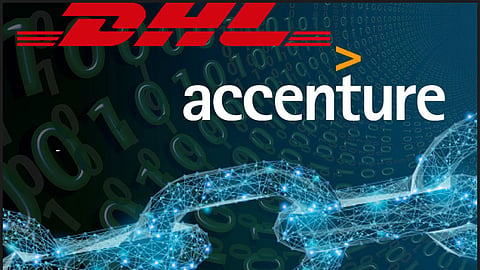DHL and Accenture unlock the power of blockchain in logistics
DHL has released a trend report in cooperation with Accenture, a leading global technology consultant, on blockchain technology’s potential to transform the logistics industry. Global supply chains are notoriously complex, with a diverse set of stakeholders, varying interests, and many third-party intermediaries – challenges that blockchain is well suited to address. The report includes initial findings on a working prototype developed by DHL and Accenture, which tracks pharmaceuticals from the point of origin to the consumer, preventing tampering and errors.
“The experiments with blockchain in finance are well known, but we believe logistics is an area where the new technology will have a truly profound impact,” insists Matthias Heutger, Senior Vice President DHL Customer Solutions & Innovation. “Implementing productive solutions however, will require further technological development and, critically, collaboration between all stakeholders.”
Blockchain is a new type of database system that maintains, records and authenticates data and transactions. In supply chains, products are assigned unique identifiers that allow their entire history to be captured as it moves to the end customer. Stakeholders validate this information in real time and if anyone tries to tamper with, alter or erase a record, everyone will know.
Saving patients by authenticating medications
As many as one million lives are lost each year due to counterfeit medications, according to Interpol, and it is estimated that up to 30% of pharmaceutical products sold in emerging markets are counterfeit. DHL and Accenture created a blockchain-based serialization prototype with nodes in six geographies to track pharmaceuticals across the supply chain. The ledger tracking these medicines may be shared with stakeholders, including manufacturers, warehouses, distributors, pharmacies, hospitals, and doctors. Lab-simulations show how blockchain could handle more than seven billion unique serial numbers and 1,500 transactions per second.
Blockchain technology shows great promise for dramatically improving the efficiency and reliability of supply chains in all industries. According to the International Data Corporation (IDC), global spending on blockchain solutions is forecast to reach US$2.1 billion in 2018, more than double the US$945 million spent in 2017. In 2021 annual spending is expected to reach US$9.7 billion (IDC Worldwide Semiannual Blockchain Spending Guide, 2017H1).
DHL and Accenture’s pharmaceutical prototype is just one of the use cases highlighted in their trend report. Blockchain could also be used for asset management, to improve transparency and traceability, and to automate commercial processes with “smart contracts,” which facilitate and verify the performance of contracts without third parties. The potential for blockchain in logistics is significant. However, moving from concepts and pilot applications to actually deploying viable solutions will require the technology to be further developed, organizational transformation and a willingness to collaborate between all stakeholders. Success depends on all parties working together to transform legacy processes and to jointly adopt new ways of creating logistics value. (Inputs From: DHL Pressroom).


